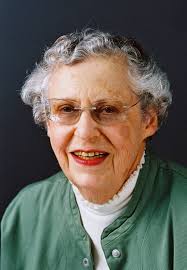 Sally Marks, one of the most influential historians of interwar diplomacy, died on January 13, 2018, in Bethlehem, Pennsylvania. For more than 30 years, Sally produced an impressive record of meticulously researched, elegantly written books, articles, and papers on the Paris Peace Settlement and its aftermath, challenging venerable myths and bringing clarity to major international issues.
Sally Marks, one of the most influential historians of interwar diplomacy, died on January 13, 2018, in Bethlehem, Pennsylvania. For more than 30 years, Sally produced an impressive record of meticulously researched, elegantly written books, articles, and papers on the Paris Peace Settlement and its aftermath, challenging venerable myths and bringing clarity to major international issues.
Born in New Haven, Connecticut, on January 18, 1931, Sally graduated with honors from Wellesley College. After working in the US Defense Department, she received her MA from the University of North Carolina at Chapel Hill and her PhD in international history from the London School of Economics. She spent most of her career at Rhode Island College in Providence, where she taught a range of courses and dazzled her students with her wit and wisdom while encouraging them to broaden their horizons. Sally was awarded fellowships from the Woodrow Wilson Foundation and the American Council of Learned Societies, and received the senior scholar award of Phi Alpha Theta.
In the early 1970s, after diplomatic archival restrictions were lifted in the United States and western Europe, Sally become one of the pioneers in reexamining the 1919 Treaty of Versailles and its breakdown in the 1920s. In “The Myths of Reparations” (1978), she tackled the intricacies of inter-Allied diplomacy and Germany’s success in reducing its payments, decisively refuting John Maynard Keynes’s assertion that the treatment of the defeated Reich was punitive.
In her George Louis Beer Prize–winning book Innocent Abroad: Belgium at the Paris Peace Conference (1981) and in a series of masterful articles, Sally not only elucidated the treaty makers’ personalities and private negotiations, but also explained the daunting conditions under which they operated in 1919: a haphazard conference structure, demanding and impatient supplicants, an aroused Allied public, and the discordant aims of the Big Three—all compounded by the Soviet menace and a Germany unwilling to acknowledge its defeat.
In tackling the aftermath of World War I, Sally produced two major texts: The Illusion of Peace: International Relations in Europe, 1919–1933 (1976, 2nd ed. 2003) and The Ebbing of European Ascendancy: An International History of the World, 1914–1945 (2002). Additionally, she authored pathbreaking articles analyzing the victors’ failure to band together after the peace conference and either reconcile Germany or enforce the tattered treaty. Indeed, Sally’s longtime focus on Belgium gave her a privileged perspective on the Great Powers’ interwar decision making, and her biography of Paul Hymans (2010) was a striking depiction of small-state assertiveness.
In order to pursue full-time research, Sally took early retirement in 1988, and as an independent scholar she continued to publish, contribute to national and international gatherings, and serve on editorial boards and AHA committees. She also generously read drafts of her colleagues’ work, and wherever she traveled, she inspired colleagues as well as young historians. Among her notable appearances was a March 2008 presentation, “Reflections on the Balance of Power,” at the Mershon Center for International Security Studies of the Ohio State University, where a large audience of faculty members and graduate students were enriched by her erudite, lucid, and witty remarks.
Sally was also an active participant and leader in community organizations, which included the Rhode Island Historical Society, the Providence Committee on Foreign Relations, Rhode Island Common Cause, and the Providence branches of the American Association of University Professors and the American Association of University Women. An accomplished gardener and gourmet cook, Sally relished dance performances and the theater as well as her favorite mystery novels.
In the mid-1990s Sally was afflicted with myalgic encephalomyelitis/chronic fatigue syndrome, which forced her to curtail her travel and public appearances. More recently, an eye ailment prevented her from driving. Despite these challenges, Sally worked until the end of her life, sustained by her personal strength, courage, and good humor, along with her devotion to her family and friends and to her profession. Sally’s former students and colleagues have been honored to know this brilliant and compassionate historian.
Carole Fink
The Ohio State University (emerita)
Tags: In Memoriam Europe Global History
Comment
Please read our commenting and letters policy before submitting.






